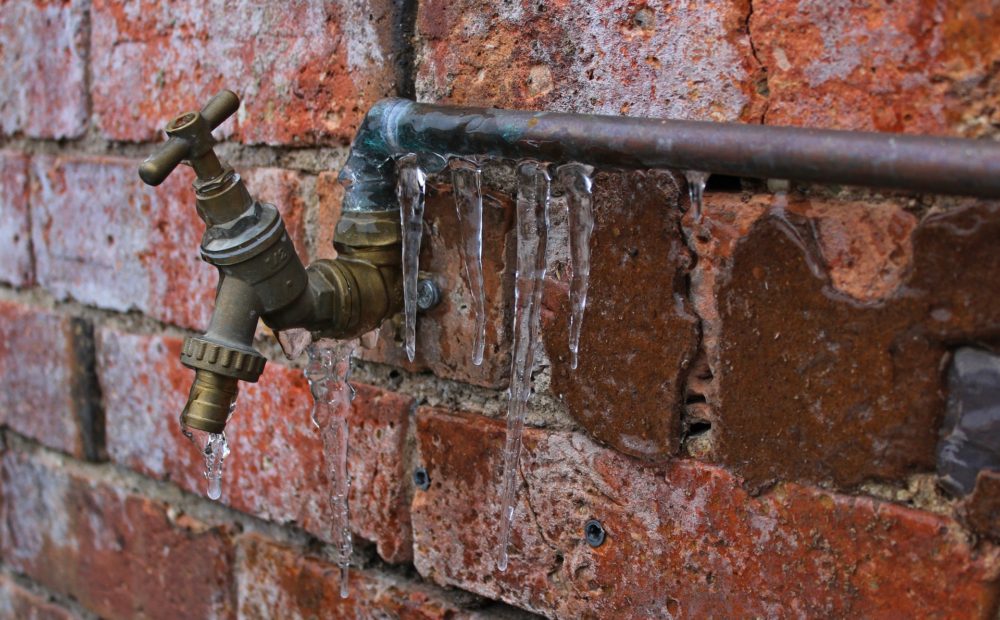Imagine this: you’re sitting next to a cheery fire on a frigid winter night, listening to the winter howling outside and glad you’re safe inside. You’re about to nod off when an ominous noise from the basement yanks you wide awake. You feel a sense of impending doom as you rush down the cellar doors. Please don’t let it be a burst pipe, you think. Please!
Your worst fears prove true as you watch water gush into your basement, turning cardboard boxes filled with tax records and valued keepsakes into mush. You wrap your arms around yourself tight, trying in vain to fend off the icy wind pouring in through a casement window. As you call a contractor, you wonder if your have enough room on your credit cards to cover the costs of repair.
This nightmare scenario befalls thousands of homeowners every year, making life miserable for everyone but the plumbing companies. The real tragedy is that these calamities are, in almost all cases, avoidable, according to the experts at Family Handyman. Here are three proven ways to ensure your pipes make it through the coming winter:
- Do you have exposed pipes in your closets or cabinets? If so, then open your cabinets and closet doors on cold nights to keep freezing temperatures at bay. You may also want to run fans to help the air circulate through your home.
- According to Home & Garden, you should consider placing lamps with a 60 watt bulb in out of the way areas that heat has a hard time reaching. Make sure there are no combustible materials near the bulb and use a standard incandescent type rather than one which uses LED or fluorescent elements.
- Keep a trickle of water flowing from 1-2 faucets on nights with sub-freezing temperatures.
It’s a Wrap!
The single best way to prevent frozen pipes is to wrap them in UL approved heating tape. This product is somewhat pricier than other options and requires access to an electrical outlet. But the cost in time and money is a bargain compared to what you will go through if a pipe bursts. Think of it as disaster insurance for your plumbing system.
What to Do If a Pipe Should Freeze
Sometimes all the precautions in the world fail to stop pipe water from freezing. Should this happen, then apply heat to the frozen section using a blow dryer or heat gun made for this purpose. Under no circumstances should you use a welding or cutting torch. Make sure the faucet is open before beginning the process. Watch for cracks or leaks and call a plumber right away if you notice either problem.
Following these tips will prevent a world of potential problems, helping you to relax and make the most of winter’s joys. You’ll thank yourself each time you turn on your faucets and watch water flow free and clear. That’s the kind of satisfaction which money alone can never buy.
Image via Pixabay








